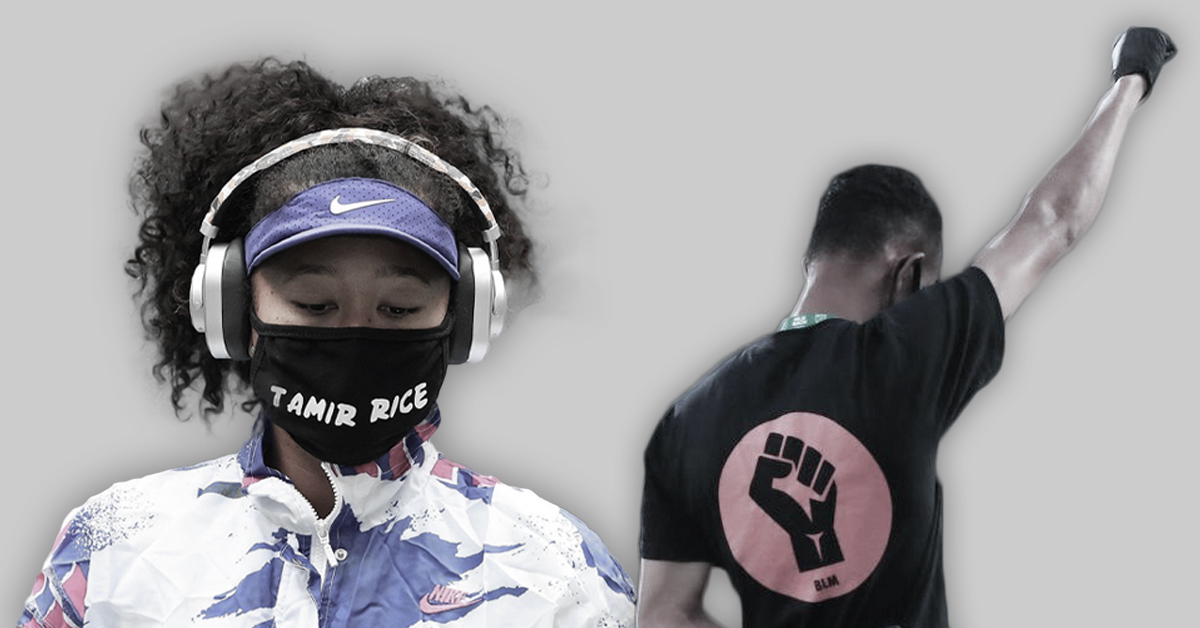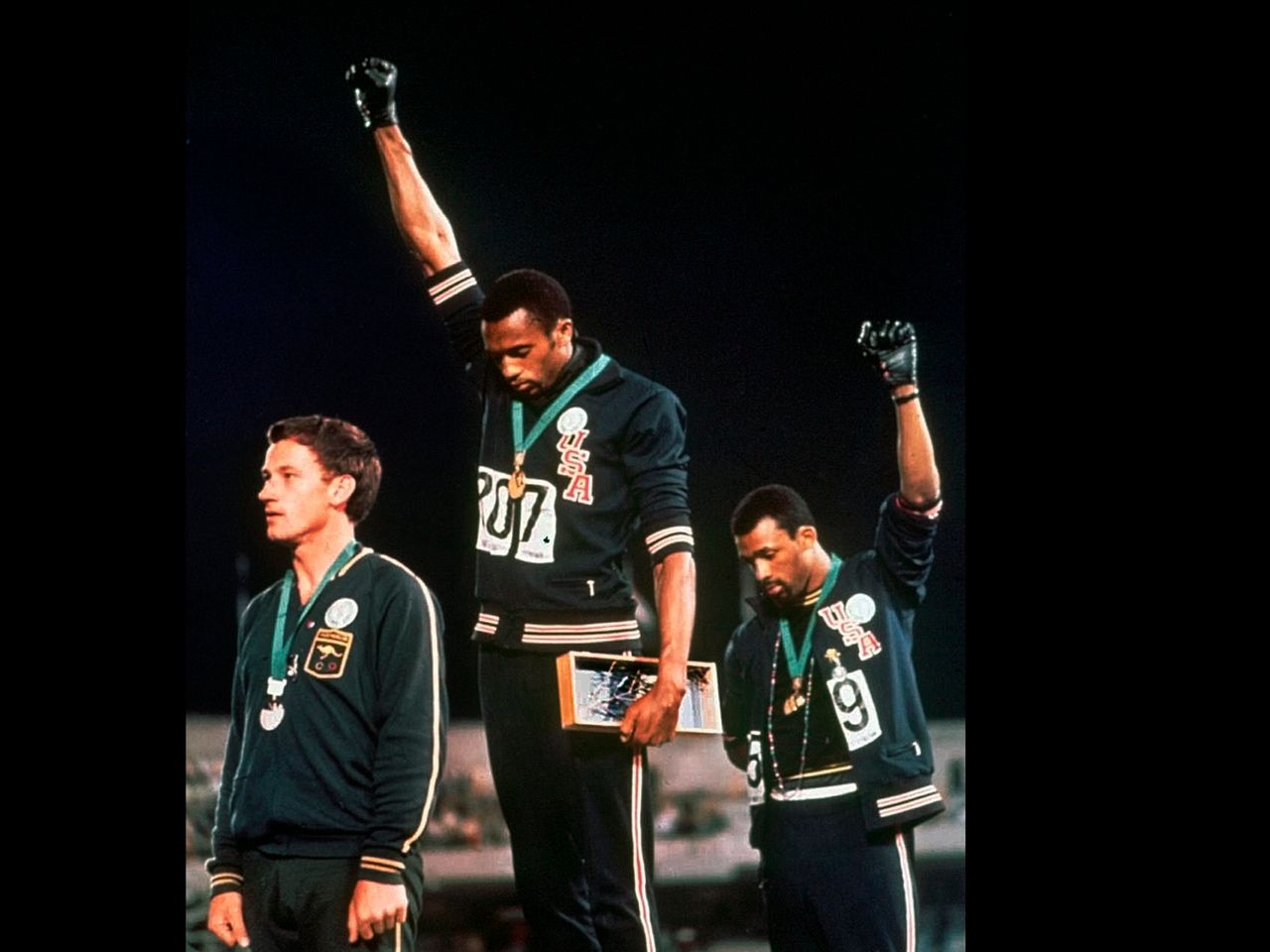Featured
Will we see Black Lives Matter protests at the Tokyo Olympics?

In its latest guidelines, the International Olympic Committee (IOC) has issued a strict warning against wearing Black Life Matters (BLM) apparels or indulging in any kind of social protests at the Tokyo Games to the athletes.
Following an unprecedented delay for a year, authorities in Japan are determined to organise the Tokyo Olympics this year. After the pandemic forced the city to postpone the Games last year, the games have been rescheduled between 23 July and 8 August, 2021.
Of course, with the pandemic still looming large, the Games likely will be scaled back a bit, with guidelines enforced to maintain social distancing, restrict movement and limit face-to-face interaction, and several of the pageantries will be toned down.
The Olympics has always been involved with heavy piles of controversies. Putting aside the coronavirus debate of hosting the Summer Games, there will be several other raging topics that would be in talks during the Games. Concern over the heat during Tokyo summer, Russia's doping scandal, USA's gymnasts recovering from a major sexual abuse scandal are some of the highlights in the context. However, one particular issue remains pertinent for long now, whether players would be allowed to protest for the Black Lives Matter (BLM) incident that had rocked the world last year following the death of George Floyd in the USA.
 Naomi Osaka wore seven different face masks for each round of the US Open
Naomi Osaka wore seven different face masks for each round of the US Open
Major sports franchises like the EPL, ICC, NBA, NFL, ATP, WTA joined the bandwagon last year of taking the knee in support of BLM when sports slowly resumed. We saw legendary sports icons across the globe to paying their homage to the cause of social justice against racial atrocities. During last year's U.S. Open, professional tennis player Naomi Osaka wore seven different face masks for each round of the tournament. Each mask, which she started wearing when the tournament named a Black person whose death was repeatedly cited in the USA's protests about racial injustice. The power of the protests reached the Indian shore when we saw cricket Hardik Pandya bending his knee during an Indian Premier League.
But what happens in the Olympics?
The Olympics Committee doesn't allow any athlete to protest during the quadrennial sporting extravaganza. From the 1970s, the Olympic Charter made it clear in its Rule 50 that "every kind of demonstration or propaganda whether political, religious or racial is forbidden in Olympic areas". The charter was enforced because of an incident 53 three years ago. At the 1968 Mexico City Olympics, 200m winner Tommie Smith and bronze medallist John Carlos each raised an arm in a black-gloved protest on the medal stand during the playing of the U.S. national anthem. They were met with derision and sent home. Cast largely as villains by the general public in the aftermath, the two are now recast as American heroes
 At the 1968 Mexico City Olympics, 200m winner Tommie Smith and bronze medallist John Carlos each raised an arm in a black-gloved protest
At the 1968 Mexico City Olympics, 200m winner Tommie Smith and bronze medallist John Carlos each raised an arm in a black-gloved protest
Can we expect the BLM protest at the Tokyo Olympics?
The International Olympic Committee (IOC) has issued a strict warning against wearing Black Life Matters (BLM) apparels or indulging in any kind of social protests at the Tokyo Games to the athletes.
Any athlete wearing any such apparel showing support to BLM might have to face strict consequences at the Olympics.
Besides, the IOC has also warned the athletes against conducting any social protests like taking a knee or lifting their fist. The IOC's Rule 50 forbids any kind of "demonstration or political, religious or racial propaganda" in venues and any other Olympic area.
Though the IOC has not specified as to what punishments would be handed out to the athletes violating these rules, it has said that a majority of the athletes are in favour of this rule.
In a survey conducted by the IOC which included around 3500 athletes, 70% of the athletes opined that they find it inappropriate to have social demonstrations during a competition while a whopping 67% agreed that it is not appropriate to do so in while standing at a podium either.
Any alternative?
IOC leaders have pointed out that athletes already are able to speak out in many ways - particularly through their access to social media. Megan Rapinoe, who has given a new voice to social justice in sports, didn't take a knee during the U.S. anthem or the medal ceremony at the FIFA Women's World Cup. However, the way, she always has stood up against former US President Donald Trump has made her one of the most influential and successful protesters in sports history.
Also read: Ad on India's farmers' protest features at Super Bowl 2021, draws global attention






